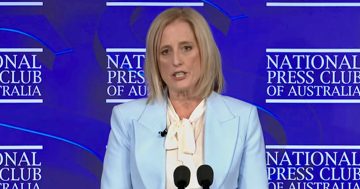Katie Jennings* says according to Melinda Gates supporting strong women starts with recognising the work of caregiving and ends in the boardroom.
 Melinda Gates doesn’t shy away from a fight. The Bill and Melinda Gates Foundation, which has a $49.8 billion endowment, is attacking some of the most intractable problems in developing countries.
Melinda Gates doesn’t shy away from a fight. The Bill and Melinda Gates Foundation, which has a $49.8 billion endowment, is attacking some of the most intractable problems in developing countries.
From healthcare access to education to gender equality, the foundation is focused on lifting people out of poverty.
“It takes a consortium of private sector, public sector, philanthropy, and civil society to hold everybody accountable,” Gates said at the 2020 Forbes Power Women Summit.
“When you get that ecosystem working and working properly, you can tackle some of the hardest challenges in the world.”
For example, she noted that mass vaccination and mosquito-netting distribution efforts have cut the childhood death rate from malaria in half over the past 30 years.
But the COVID-19 pandemic, she said, is bringing challenges closer to home.
“The pandemic has laid bare what our economy is built on—and economies all over the world are built on—the backs of women’s unpaid labor,” Gates told moderator Moira Forbes, president and publisher of ForbesWomen, as the bulk of caregiving for children and relatives has disproportionately affected women.
Here are Gates’ ideas for improving equality during this time of crisis.
Strive for equality in the home
“You have to learn to have your voice in your home. If you don’t see equality in your own home, it’s very hard to live out in the world,” said Gates.
“If you feel like you’re doing more than your fair share of the unpaid labour, you better figure that out with your partner in your home or with your kids to take on some of the labour.”
But this also extends outside the home. It means seeking out friends “who see you for your true self and help you with your voice,” she said.
Rethink Caregiving and Childcare
Between lockdowns and virtual schooling, the pandemic has put increased pressure on parents trying to work, whether it be from home or in person.
But the pressure is more acutely felt by women.
A September report from the Department of Labor estimated that 865,000 women dropped out of the American workforce, four times the rate of men.
“If we’re going to build back as quickly as we possibly can, from COVID-19, we have to look at this fundamental issue of caregiving, because it is one of the things that holds women back from doing the productive work they sometimes want to do in society,” said Gates.
Implement paid family medical leave
The private sector needs to ensure “good paid family medical leave policies,” so that parents shouldn’t be forced between caring for a newborn child or not having any income, said Gates.
And she doesn’t just mean women.
Gates pointed to Sweden, which provides both parents with paid leave: “If a dad takes time off at the beginning, he participates in rearing the child all the way through their life far more.”
Promote women leaders
“It helps when you have more women in leadership positions, because they know what this burden looks like,” Gates said.
It will also cause a ripple effect. “When you have more female leaders in Congress, in the Senate, in state houses, very good policies get passed.”
She also dismissed the idea of “leaky pipelines,” as a reason that women don’t rise to positions of power, and said it’s up to management to set an example.
She said CEOs need to tell senior leaders “we are going to move the needle on this [and] have transparency about how many women and people of colour you have at all levels,” said Gates.
The key is analysing, measuring and holding people accountable to implement these changes.
Gates has teamed up with MacKenzie Scott, the former wife of Amazon founder Jeff Bezos, on a $40 million gender equity challenge called “Equality Can’t Wait,” which aims to incubate the most promising ideas for helping to expand women’s power and influence in the United States by 2030.
Gates and her husband have also committed more than $420 million to ensure the distribution of COVID-19 vaccines to low- and middle-income countries.
“I define power as using your voice and your resources to change the world for others, and particularly in a time of crisis,” Gates said.
*Katie Jennings is a staff writer at Forbes covering healthcare, with a focus on digital health and new technologies. She can be contacted at [email protected] or on Twitter @katiedjennings.
This article first appeared at forbes.com.











